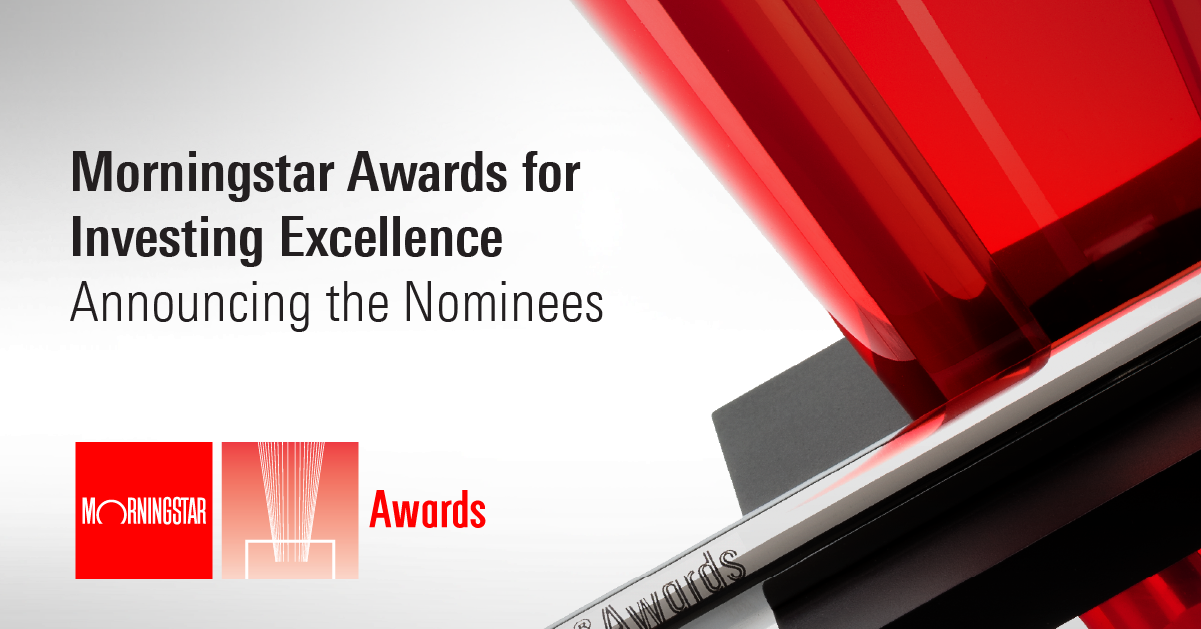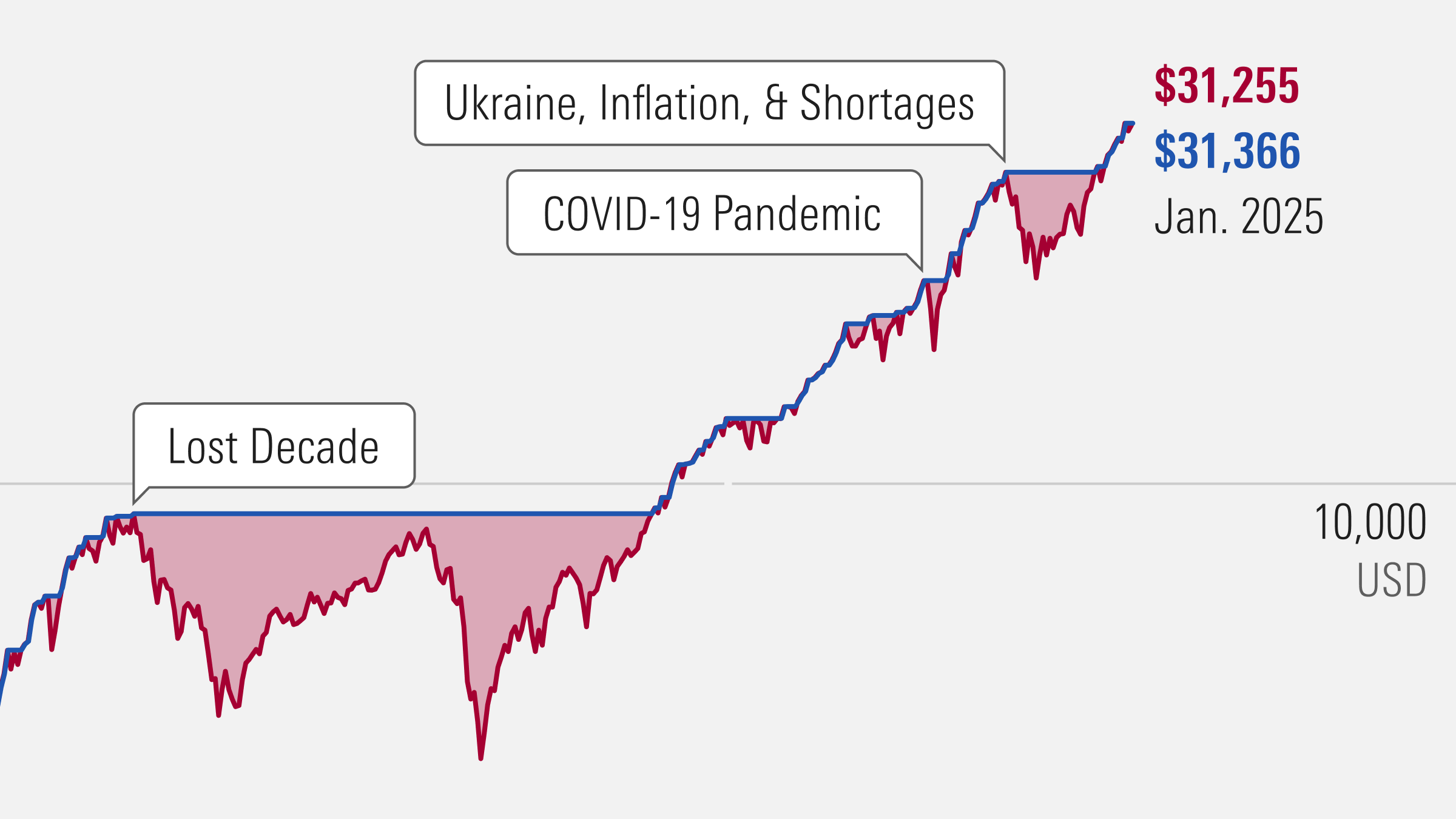
In this series of short profiles, we ask leading fund managers to defend their investment strategies, reveal their views on cryptocurrency, and tell us what they'd never buy.
This time our interviewee is Aziz Alnaim, fund manager of the Morningstar 5-globe rated Mayar Responsible Global Equity Fund at Mayar Capital.
Which Sector Shows The Biggest Promise in 2022?
Although the Mayar strategy focuses on bottom-up fundamental research rather than searching for particular sectors, every now and then sentiment on a certain sector can become too negative which creates opportunities. One such sector where we are finding opportunities today is technology.
Many lockdown-era technology darlings have sold off considerably from lofty valuation levels. Even though many, in our opinion, are still overvalued, there are some where the market has “thrown out the baby with the bathwater”. This often happens because sentiment turns against a whole sector or because of common ownership forcing rebalancing. We believe that companies such as Google, Dropbox and PayPal have been unfairly punished in this post-lockdown sell-off.
What's The Biggest Economic Risk Today?
It’s probably a risk that nobody is thinking or talking about right now! Are we concerned about the impact of inflation and higher interest rates? Sure, though we believe the impact is going to be short term and it really wouldn’t have any impact on our investment process. The truth is that even if it were possible to predict macroeconomics events – and we don’t think we can – we don’t think we can predict the market reaction. Those lucky enough in December 2019 to have a crystal ball telling them that a global pandemic would close large parts of the world economy would probably be surprised to see the market up over 40% by the end of 2021.
We think it is a better use of our time and effort to identify companies that are built to withstand economic shocks and use market sell-offs to buy them at a discount to what we believe they are really worth.
Describe Your Investment Strategy
We describe our strategy as Responsible Global Value. We look for great businesses that are housed within great companies and then buy them at what we believe to be great value.
The reason that we split the strategy into three components is that often, not all of those factors exist at the same time.
We may find a great business but the company is focused elsewhere, or the capital structure is over-leveraged. Or the company may have a great management team but we can’t buy at an appropriate discount to intrinsic value.
Everything we do is grounded in what we call Mayar’s Ethical Business-Owner Approach™. We believe that whether you own 100 shares or 100% of the company you are an owner of the business and morally responsible for its actions towards all stakeholders. What would you do if your name was on the door? This is the basis of our responsible investing view. This view also informs how we evaluate investments by thinking about the fundamental long-term performance of the business instead of thinking about an exit price for the stock in six months or a year. By thinking like business owners, we only invest in companies that are consistent with both our ethical and investing values.
Which Famous Investor Do You Admire?
In early 2000 when I was an engineering undergraduate at MIT, a friend told me about some success he was having ‘trading the markets’ and about this guy I’ve never heard of called Warren Buffett. He suggested a few books to read. So I walked into the local bookstore and bought several books. One was a book on day-trading, which remains unread to this day. Another was One Up on Wall Street by Peter Lynch. It was a real-life changing moment and the text that started me on my journey in investing. I then read The Warren Buffett Way, Phil Fisher’s Common Stocks and Uncommon Profits and Ben Graham’s The Intelligent Investor. The whole approach to investing just made perfect sense to me, especially when juxtaposed against the day trading in tech stocks that all my friends were doing at the time. I’ve been inspired by many great investors since, but I think those were really foundational for me.
Name Your Favourite "Forever Stock"
The best company is one that can grow for many years without the need to deploy much additional capital. This means that its investors can benefit from the growth in the value of the business while also can also getting back the majority of the free cash flow that the business generates in the form of dividends and buybacks. It’s a very rare beast but when you find one you should “HODL” it for as long as these conditions remain. We’ve owned Visa and Mastercard for 10+ years and they’re a perfect example of that. Both have been ten-baggers for us. The second-best type of business is one that needs to deploy significant amounts of incremental capital to grow but can consistently earn high returns on that capital. The compounding effect over long periods of time can be significant. In certain cases this second kind of business can actually be better as management has less free cash to “diversify” with and destroy value.
What Would You Never Invest In?
Never is a strong word! I am always reluctant to think in terms of absolutes. When I think about the value of a company, rather than a precise point, I prefer to think in terms of ranges, that company is worth between x and y. Some industries, biotech is a good example, we find that range of possible outcomes is too wide for us to conduct any meaningful analysis.
Perhaps the one thing we wouldn’t touch is a company that is unable to earn returns above its cost of capital because it sells a commoditised product or service. The problem with such companies is that surprises are almost always to the downside. Also, unlike great businesses, time is not your friend here.
Growth or Value?
We think growth is one of the most important components of value. It’s a bit silly to think of the two as separate in my opinion. We basically prefer both! Our preference is always for companies where there is some kind of hidden value or at least that look expensive at first sight. For example, we believe that accounting rules have not evolved with the way modern companies invest in intangibles which leads to many fast-growing companies appearing expensive on more conventional accounting multiples.
House or Pension?
In additional to the psychological benefit there are three financial advantages to owning your house. First, it’s easy and generally safe to leverage because the bank doesn’t “mark-to-market” like it would do if you borrowed against your stocks. This means returns on your investment can be much higher than if you paid cash. The second, and I would argue bigger benefit, is that it’s a way to force you to save. By being unable to skip your mortgage payment you’re guaranteed to be putting money away every month. Over your lifetime that really matters. The third benefit is that in many countries there is a tax benefit from home ownership or from having a mortgage.
You could of course replicate the second benefit with an automatic regular pension contribution but most people don’t do enough of that. So, I think for all the above reasons it’s probably sensible to buy your primary residence. The long-term return on assets will almost certainly be lower than stocks but the leverage helps, especially in the early years and the behavioural aspect is very valuable. Overall, I do think that over the long-term stocks will do better but most people destroy so much of their potential portfolio returns by trying to time the market or by falling for this or that hot trend.
What Are Your Thoughts on Crypto?
As an investment today? Probably bad. As a technology that can have useful applications? Probably brilliant. I think a lot of people will be hurt badly and I suspect it will turn off a whole generation from investing in general. I think regulators are sleeping at the wheel and shouldn’t have allowed this whole thing to get this big. I could go on and on about this but I won’t...
What Can be Done to Increase Diversity in Fund Management?
Behavioural science tells us that even the acknowledgment of biases is not enough to mitigate their cognitive impact. Instead, it is necessary to implement tools and processes. For example, when hiring Mayar makes use of anonymising software that removes names and ages when screening CVs.
Of course, there is a deeper societal issue where the number of applications from candidates with diverse backgrounds is much lower relative to the depth of the talent pool. As an industry, we have to do a better job of convincing people that this is a career for them. I think bigger firms that have big graduate schemes can make a big difference over time by recruiting outside where they usually search and putting in more effort to encourage women and minorities to join the industry.
It’s not only the right thing to do, but I also think it can have a material positive impact on the quality of analysis and investments.
Have You Ever Engaged With a Company and Been Particularly Proud (or Disappointed) in the Outcome?
In late 2019 we owned shares in Merlin Entertainment, which owns Lego Land, Madame Tussauds and several other attractions. It got an acquisition offer that we felt undervalued the company. We engaged with the company, with other big investors and the media. Ultimately, we couldn’t get enough traction to stop the deal or get a better price. A couple of months later COVID-19 hit, and the company really struggled with shut down attractions so we were really lucky that it got acquired from us before then, but I can’t really claim credit for that. What can I say, it’s good to be lucky sometimes!
What's The Best Bit of Advice You’ve Ever Been Given?
When I first started the business 20 years ago, I asked my grandfather for business advice. He said, “be honest with yourself, be honest with God, and be honest with people, and good things will always come your way.”
What Would You Be if You Weren’t a Fund Manager?
Without that Peter Lynch book, probably an engineer. I’ve always loved computers and gadgets. In truth, I am lucky enough that people trust me and the team to be stewards of their capital. But if that were to change for any reason, I would still be an investor.


























